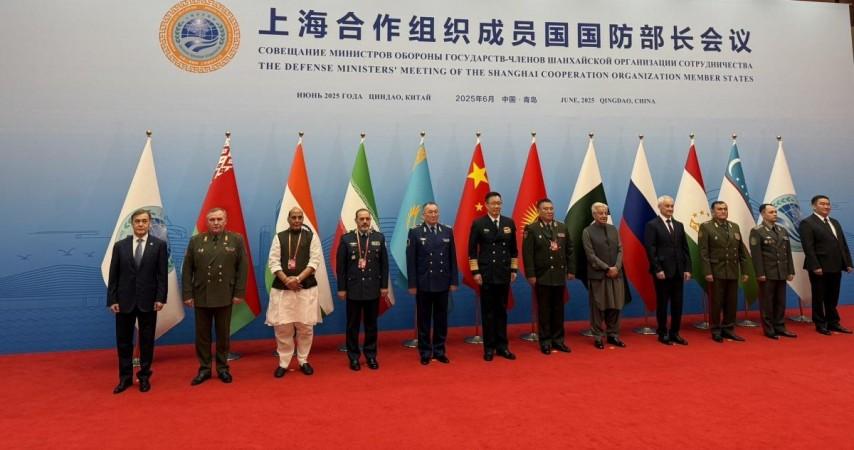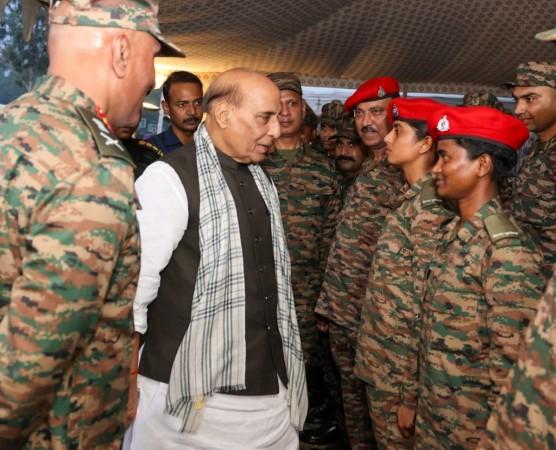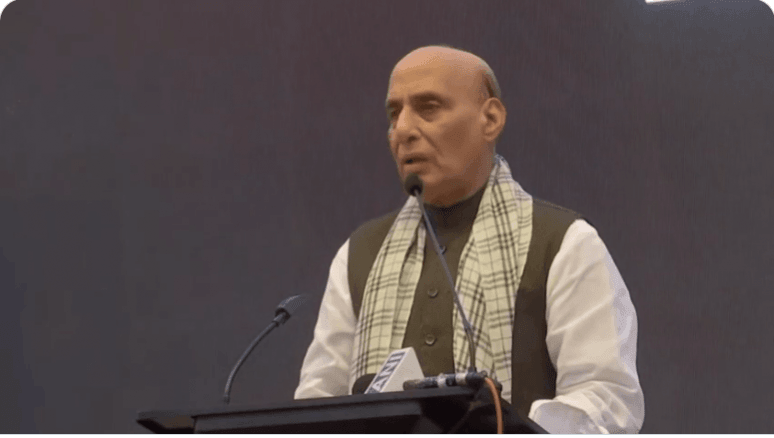
India's Defence Minister Rajnath Singh delivered a powerful address at the Shanghai Cooperation Organisation (SCO) Defence Ministers' Meeting in Qingdao, China, emphasizing the urgent need for collective action against terrorism and the proliferation of weapons of mass destruction (WMDs) by non-state actors. Singh highlighted the pressing challenges of radicalisation, extremism, and a growing trust deficit in the region.
"I believe that the biggest challenges that we are facing in our region are related to peace, security, and trust deficit. And the root cause of these problems is increasing radicalisation, extremism, and terrorism," he stated.

"Some countries use cross-border terrorism as an instrument of policy and provide shelter to terrorists. There should be no place for such double standards. SCO should not hesitate to criticise such nations," he asserted.
India's zero tolerance towards terrorism was a central theme in Singh's address. He highlighted India's proactive measures to defend itself against terrorism, including the right to target the epicentres of terrorism. Singh also called for global action to prevent the radicalisation of youth, acknowledging the significant role of the SCO's Regional Anti-Terrorist Structure (RATS) in coordinating counter-radicalisation efforts.
Singh's address was marked by controversy as he refused to sign a joint communique of the SCO due to the omission of the Pahalgam terror attack and the lack of explicit addressing of India's concerns over Pakistan-backed cross-border terrorism. The omission of the Pahalgam attack, in which 26 tourists were killed by 'The Resistance Front', an offshoot of the Pakistan-based UN-designated terror group Lashkar-e-Taiba, was a significant point of contention. Singh demanded the inclusion of the attack in the communique, while the Pakistani side pressed for a paragraph on militant activities in Balochistan, leading to a stalemate.
The Defence Minister's refusal to sign the communique was a clear indication of India's firm stance against terrorism and its unwillingness to compromise on critical issues. Singh took a swipe at Pakistan for backing terrorist groups, calling for accountability for the "perpetrators, organisers, financiers, and sponsors" of terrorism, including cross-border terrorism. He emphasized the need for proactive steps to prevent the spread of radicalisation among the youth, acknowledging the significant role of the RATS mechanism in tackling the challenge.

Singh reiterated India's consistent support for peace and stability in Afghanistan, emphasizing India's role as Afghanistan's largest regional development partner and its commitment to providing humanitarian assistance and capacity-building initiatives for the Afghan people. The Defence Minister's address also touched upon the broader geopolitical challenges facing the region. He noted that globalisation has been losing momentum, and the weakening of multilateral systems has made it harder to address urgent challenges, from maintaining peace and security to rebuilding economies after the pandemic.
Singh emphasized the importance of reformed multilateralism in building cooperation to prevent conflict between countries by creating mechanisms for dialogue and collaboration. His call for greater cooperation among SCO members was a recurring theme throughout his address. He stated that India supports "greater cooperation and mutual trust among SCO members. We should collectively aspire to fulfil the aspirations and expectations of our people as well as tackle today's challenges. We must all be in lockstep in our endeavour to strengthen stability and security in our neighbourhood."








